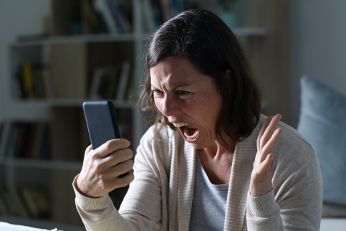
How do I explain war to my child?
“Some people have vague but also specific concerns, for example that the war will spread or that there will be a nuclear war in Europe. In some cases, these concerns are so great that they are pushed aside in day-to-day life.”
Before parents can talk to their children about it, they must first process their own impressions and associated feelings. In crisis situations it is important and right to think about how you yourself can deal with these situations.
In response to the question of whether the war should be proactively explained to children, the expert says “it depends on the child’s age and reactions. Under the age of five, children are not able to understand much or anything at all about dying, death or killing. They aren’t yet aware of finality.” In principle you can talk to children about any topic, because a lot is anchored in the subconscious. Parents can also assume that the topic of war will come up in discussions with other children. It’s therefore very important to be attentive to your own children. “Feel it out and see how your child is doing. Are they concerned? Are they withdrawing? Then you should address the topic.” For example, you could say “I'm worried about the war. How are you and your friends feeling about it?” But if you feel like the children are not affected, it can be counterproductive and worry them if you talk about the war too much.
According to the expert, as a parent you play a supportive role, so you also have to allow for concerns and sadness. If children’s worries become too significant, you can seek help: “There are various channels and daily newspapers that address the topic in a child-friendly way. You don’t have to do the whole thing by yourself. One example is a video in the Zoom Children’s Museum on the current situation in Ukraine.” It’s important, though, to restrict media consumption as drastic images are all too often shown.
You can, however, encourage children to take part in relief operations that give them a good feeling, like craft activities making doves of peace. You can also talk to your children about whether you want to actively support one of the various relief operations together. This can have a stabilising effect and mitigate the feeling of helplessness, and it can also reduce worries.
If you would like some assistance with talking to your children, feel free to contact one of the Austrian family counseling centers and arrange a free appointment.
Our interview partner
Isabella Kainersdorfer is an educational worker and counselor in family counseling centers run by the Association of Holistic Support and Therapy in Lower Austria.
Gesellschaft für ganzheitliche Förderung und Therapie Niederösterreich GmbH (gfgf)
Hamerlingstraße 20
3910 Zwettl
Website gfgf
The interview was conducted in April 2022.

_Wutregulierung.jpg)
_Akzeptanz.jpg)